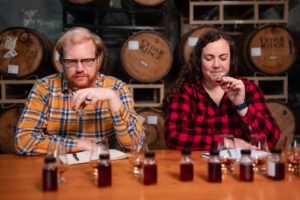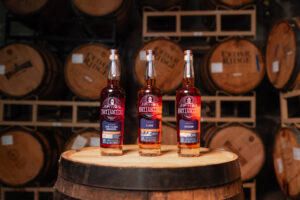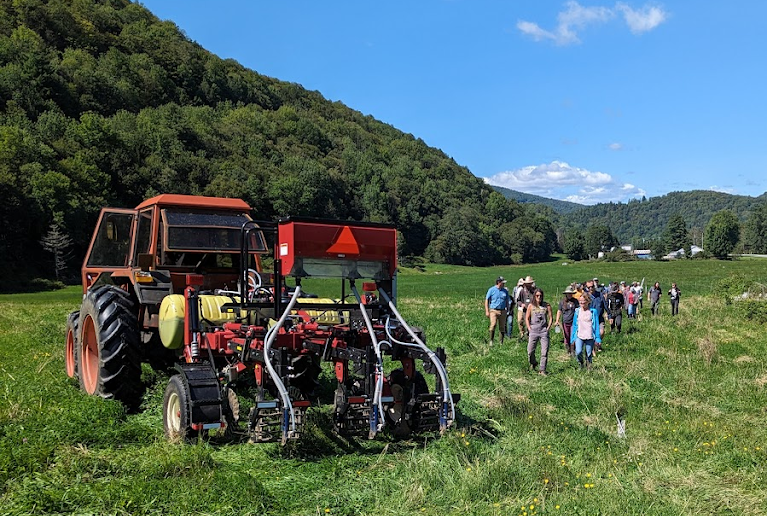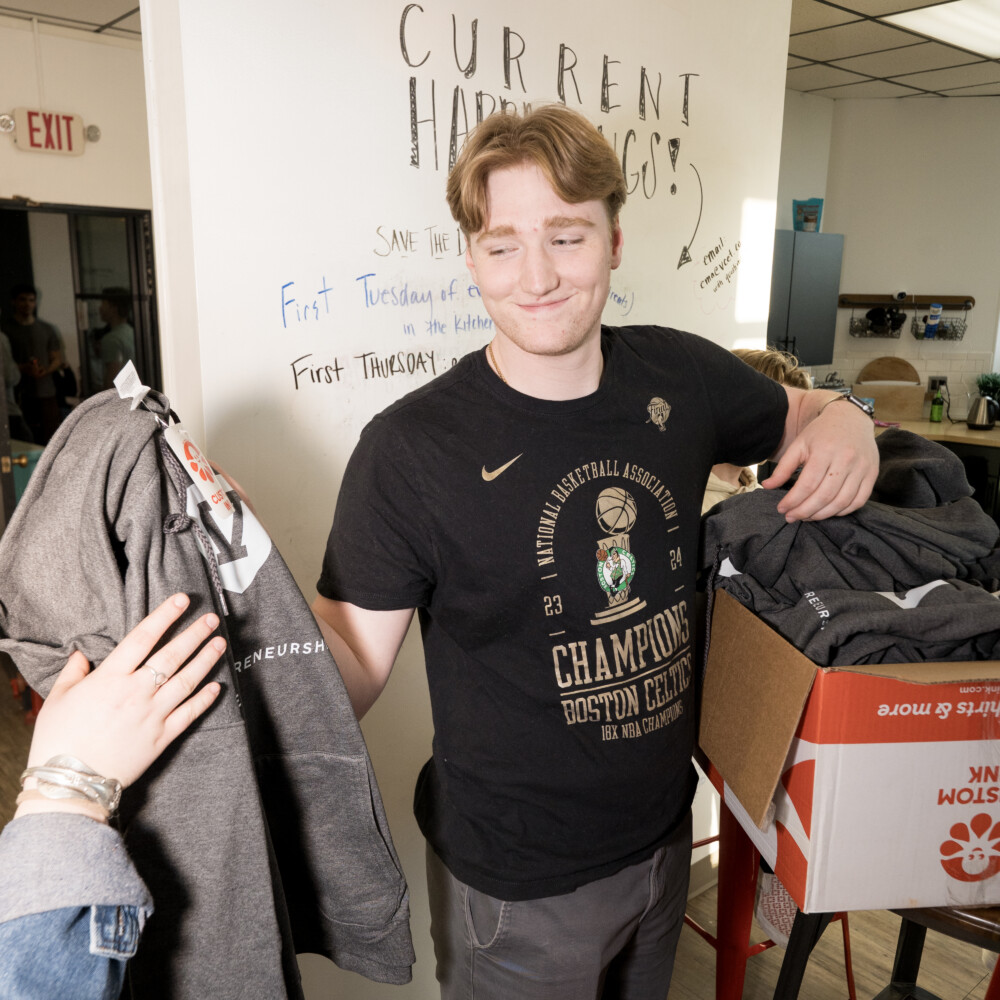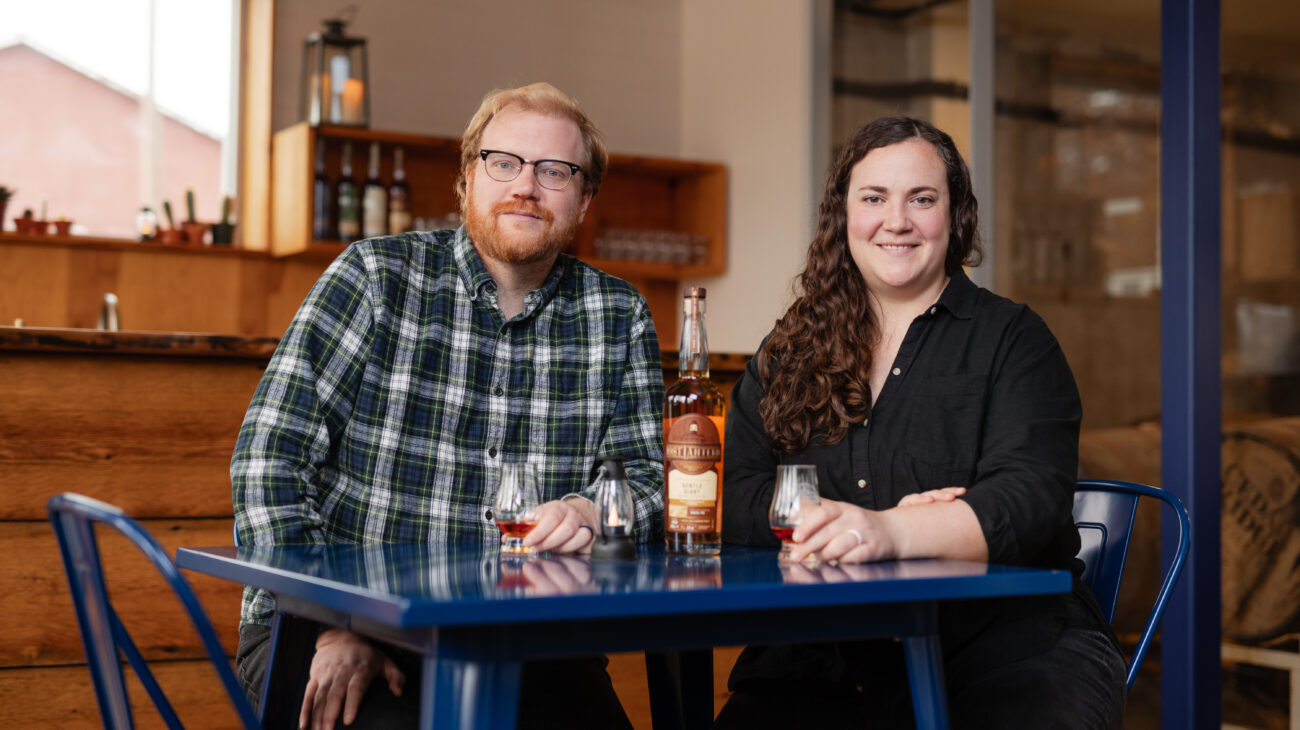
Lost Lantern / Company Spotlight
Adam “Apolon” Polonski (left) and Nora Ganley-Roper (right) are the co-founders of Lost Lantern, an independent bottler of American whiskey.
In the 1960s, craft beer found its way to the United States, and two decades later, craft whiskey followed suit.
Today, over two-thousand independent whiskey distilleries exist in the country. Yet, for Lost Lantern co-founders Adam “Apolon” Polonski and Nora Ganley-Roper, something was missing.
“There was an opportunity for someone to hunt down the best whiskey from across the country and help people get their hands on it,” said Polonski.
Drawing inspiration from the centuries-old independent bottling model in Scotland, Lost Lantern purchases barrels from distilleries and sells these spirits under their own label. Unlike independent distilleries, bottlers have broader distributions and the ability to craft uniquely layered whiskeys, blending flavors for added complexity.
And few people know whiskey as well as Polonski and Ganley-Roper.
Before establishing Lost Lantern, the couple had significant experience in the spirits industry. Polonski served as the Senior Whisky Specialist at Whisky Advocate, the country’s largest and oldest whiskey magazine, while Nora was a Sales Manager at Astor Wine & Spirits, a leading spirits retailer.
“We spent probably two years complaining about how this [independent bottling] model didn’t exist [in the United States], and then we eventually said, maybe we’re the right people to do this,” said Ganley-Roper. “And then, I spent another year looking at all the legal requirements, running all financial models. But when we got to that point, we didn’t know if anyone would sell us whiskey.”
The next step? Leave New York, and embark on an eight-month, cross-country road trip, of course.
In 2018, the couple talked to as many distilleries as they could, from New York to California to Texas. They were most interested in distilleries who made whiskey with a strong sense of place, that tasted like its origin; for instance, California-based Corbin Cash Distillery, a century-old sweet potato farm who began distilling whiskey from the rye grown on their fields.
“Most of [the distilleries] were like, ‘Hallelujah, we’ve been waiting for this,’” said Ganley-Roper, “And pretty universally said yes.”
Few have whiskey palettes like Polonski and Ganley-Roper.
After the road trip, the couple settled near Burlington, where they established Lost Lantern. Shortly thereafter, they became VCET coworking members.
Lost Lantern officially debuted in October 2020, releasing their first blend –– a “vatted” whiskey composed of single malts from six distilleries. The following March, they introduced five single-barrel picks.
Each bottle produced by Lost Lantern prominently features the whiskey’s origin. Some are blends of various whiskeys, while others are single-barrel picks from distilleries that consumers might not otherwise get their hands on. So far, Lost Lantern has worked with about 30 distilleries and visited nearly 200.
“It’s really important to us that no one ever thinks that we distill it, and that they understand why it’s special,” Ganley-Roper said. “Telling the stories and highlighting the distilleries goes hand in hand with the whole ethos of Lost Lantern.”
Polonski and Ganley-Roper say their target audience is “whiskey nerds”, though they have been surprised by how many young people have purchased their products, too.
Over the past three years, Lost Lantern has secured several national and international awards, including three medals at the 2023 San Francisco World Spirits Competition and the Icons of Whisky Global and American Bottler of the Year awards in February. Most recently, their whiskey, FLAME, won Best American Blended Malt at the World Whiskies Awards.
In 2022, VCET became an early investor. “Folks are sometimes surprised to hear that VCET invested in a whiskey company, but what they don’t realize is that Lost Lantern is a digital-first company,” says Sam Roach-Gerber, VP at VCET. “Their business has been ecommerce focused and tech-enabled from the start. We loved the way they applied a new business model to a centuries old product.”
“Sam and Dave, in particular, have been a huge help because they have both applauded things but also given us a firm nudge when you need it,” said Ganley-Roper. “Our first round of fundraising would have been a lot slower and a lot more difficult, but they gave us some really valuable advice as we saw that round through.”
A recent display of Lost Lantern’s whiskey series.
While Lost Lantern began as an e-commerce business, they opened a tasting room in October. The couple has enjoyed pouring whiskey directly for people on a regular basis and welcomes visitors from throughout the state and region. The tasting room offers both flight and bottle sales.
And even though Vermont doesn’t make perfect sense from a travel or alcohol law standpoint, the state offers other advantages.
“I want our home base to be a place where we’re able to hire the right people and build what we want,” said Ganley-Roper, who was raised in Middlebury. “We want this to be a big facility when we want to hire a bunch of people, particularly from the agriculture space, who we’ve found are really great in the industry.”
Ganley-Roper especially encourages women to apply to open jobs in the whiskey industry, especially in the production space.
Looking forward, Lost Lantern is preparing for another fundraising round to support expansion efforts, particularly in hiring. At the end of 2023, their first production team member started in Vergennes.
“Our long term potential is becoming a whiskey destination in the way that some of the big breweries in Vermont have,” said Polonski. “The vision for the company has always been to eventually be a national luxury whiskey company.”

